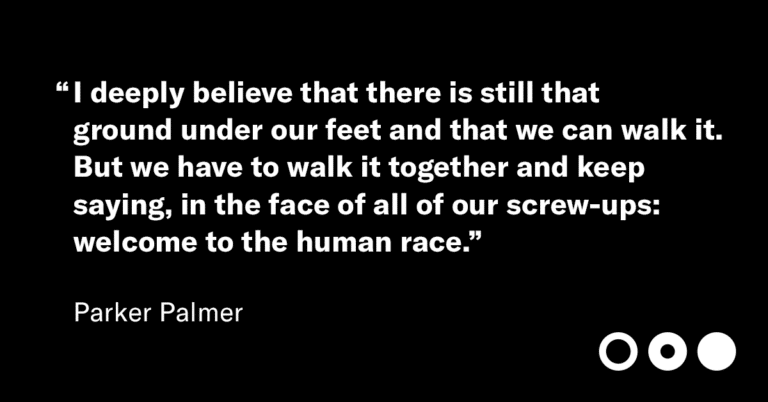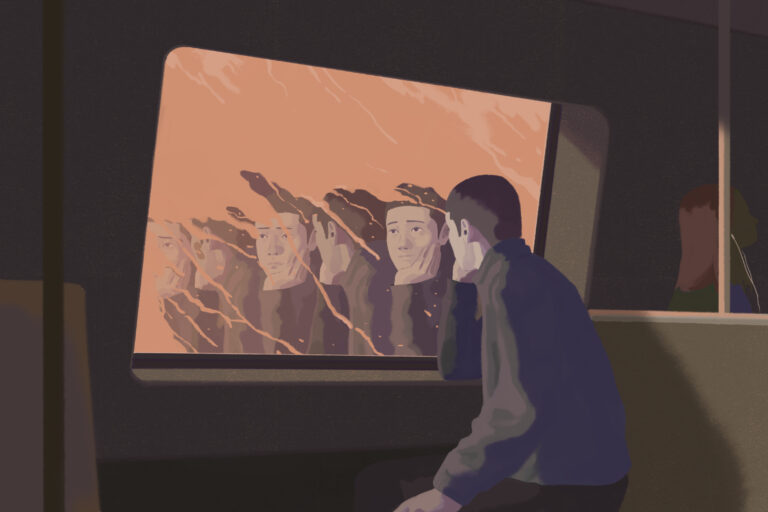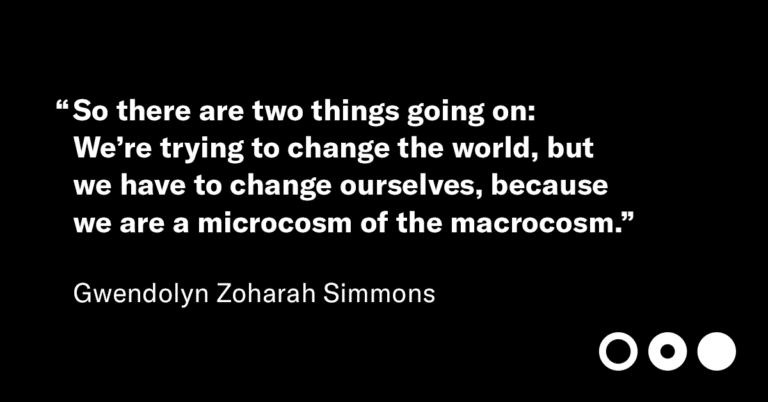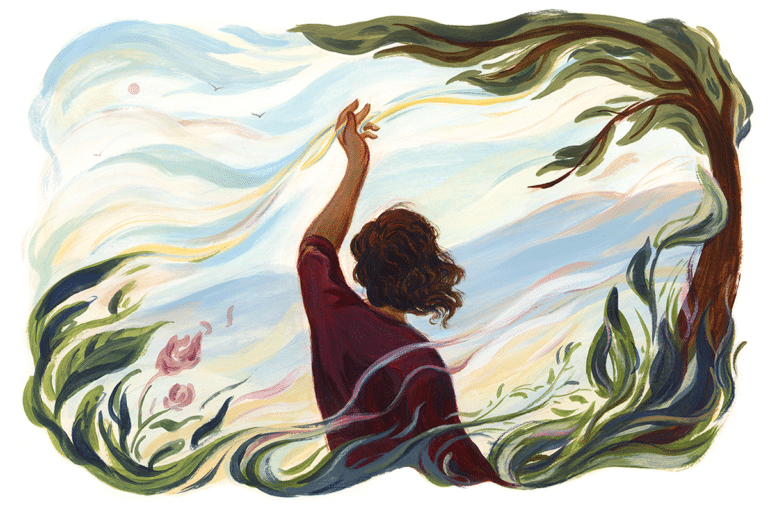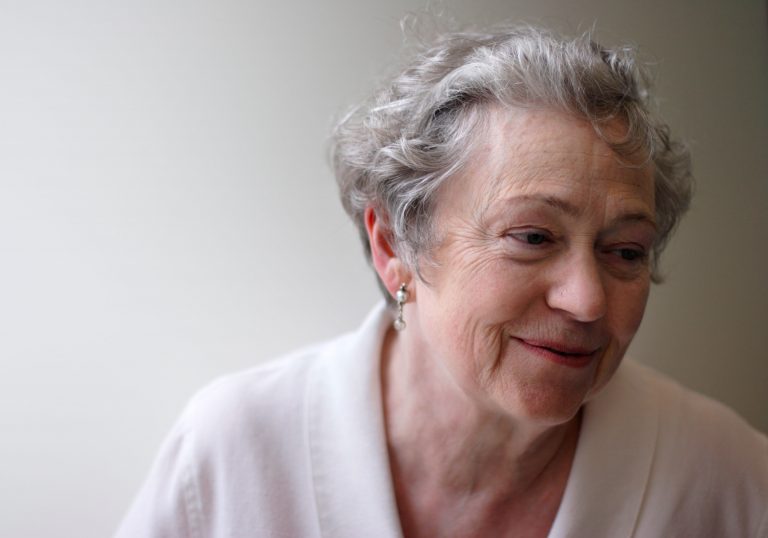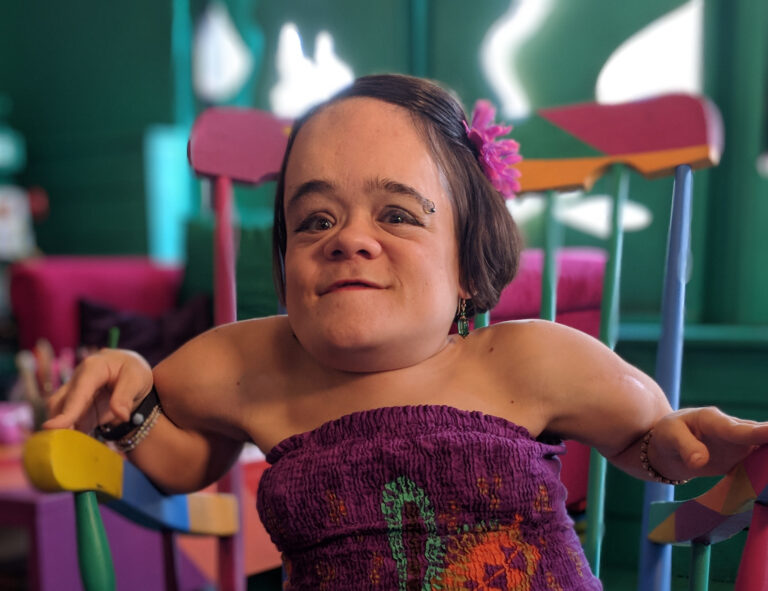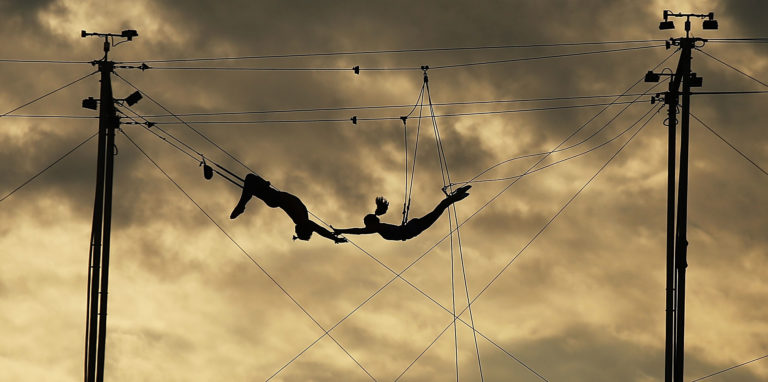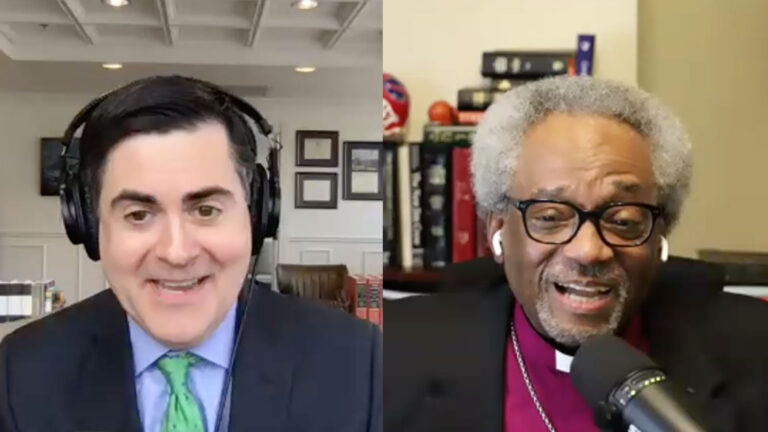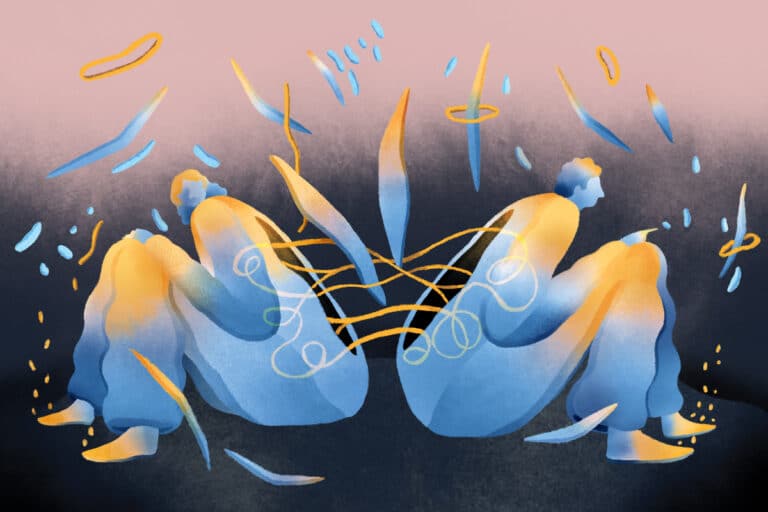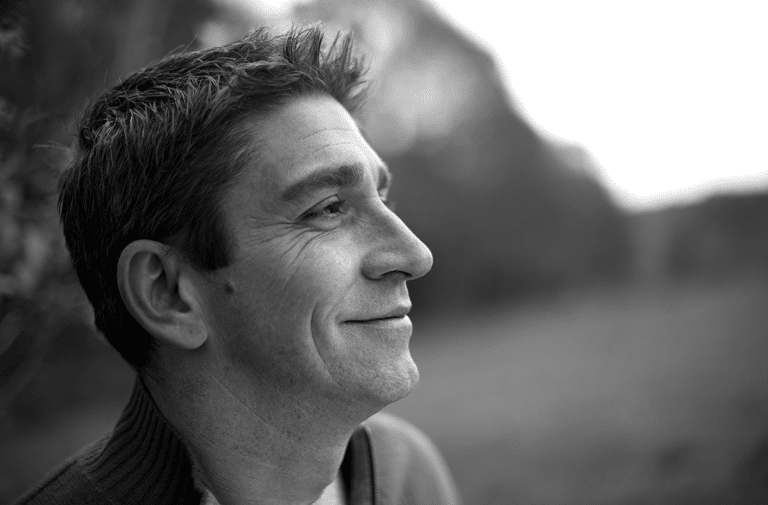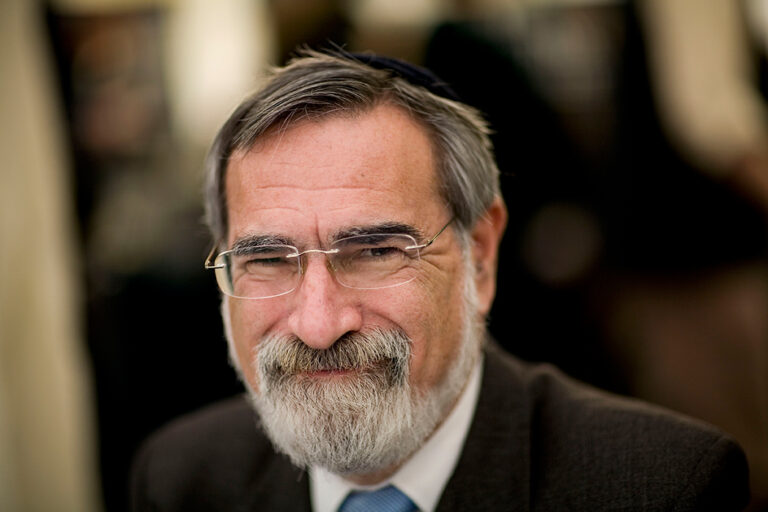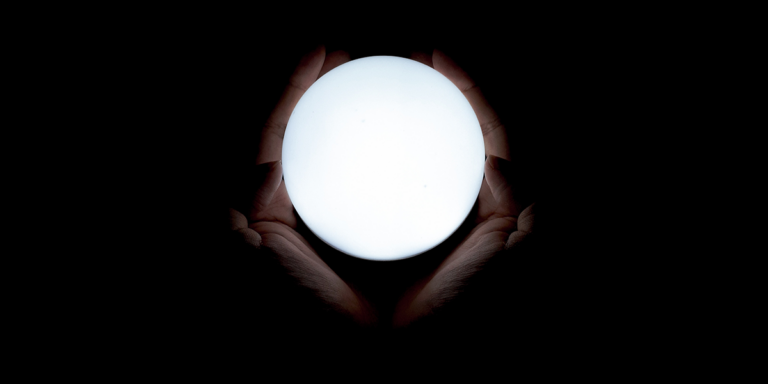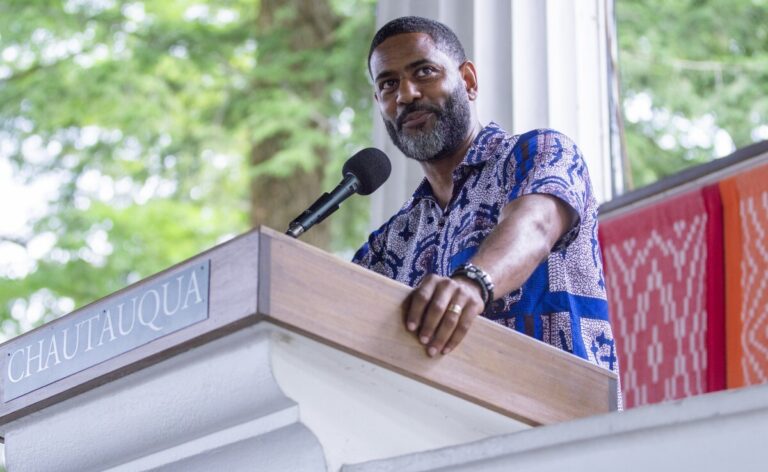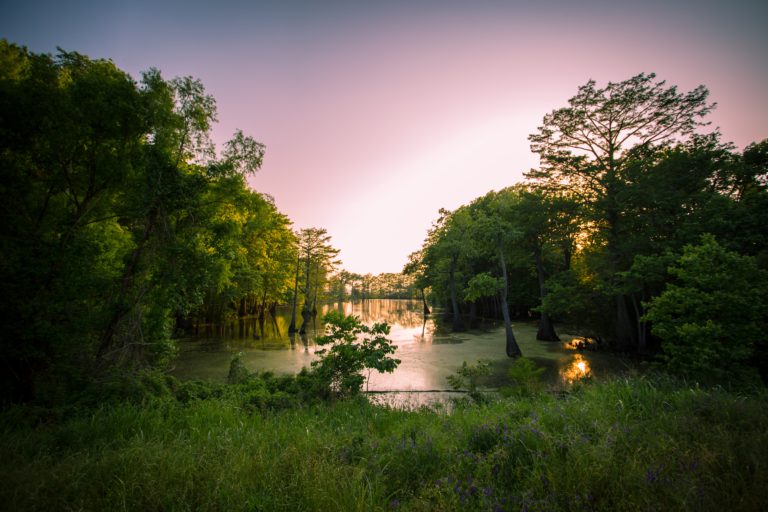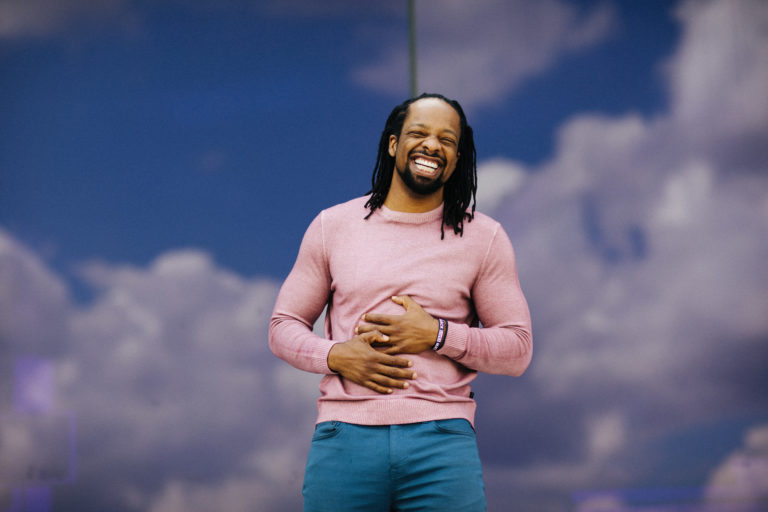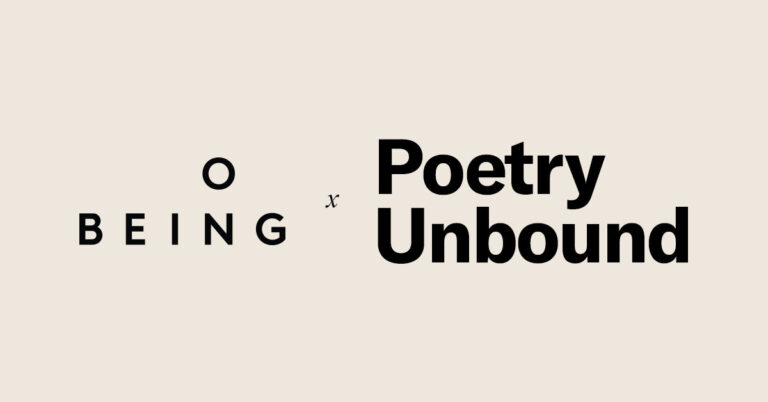A companion conversation to Parker Palmer’s reflections in this week’s On Being, about the soul in depression. Krista catches up with her friend and teacher in 2021. Plus, Parker learns to use QuickTime.
On Being with Krista Tippett
View
- List View
- Standard View
- Grid View
510 Results
February 4, 2021
The Soul in Depression
We’re increasingly attentive to the many faces of depression and anxiety, and we’re fluent in the languages of psychology and medication. But depression is profound spiritual territory; and that is much harder to speak about. This is an On Being classic. Krista opens up about her own experience of depression and talks with Parker Palmer, Anita Barrows, and Andrew Solomon. We are putting this out on the air again because people tell us it has saved lives, and so many of us are struggling in whole new ways right now.
January 18, 2021
Living the Questions
A Civil Rights Elder on Exhaustion and Rest, Spiritual Practice, and the Necessity of Loving Community
Our colleague Lucas Johnson catches up with one of his mentors, Gwendolyn Zoharah Simmons. Now a member of the National Council of Elders, she was a teenager when she joined the Mississippi Freedom Summer. She shares what she has learned about exhaustion and self-care, spiritual practice and community, while engaging in civil rights organizing and deep social healing. Dr. Simmons was raised Christian and later converted to the Sufi tradition of Islam.
January 7, 2021
Frank Wilczek
Beauty as a Compass for Truth
“Having tasted beauty at the heart of the world, we hunger for more.” These are words from Nobel physicist Frank Wilczek in his book, A Beautiful Question. It’s a winsome, joyful meditation on the question: Do cosmic realities embody beautiful ideas? — probing the world, by way of science, as a work of art. He reminds us that time and space, mystery and order, are so much stranger and more generous than we can comprehend. He’s now written a wonderful new book, Fundamentals: Ten Keys to Reality.
December 31, 2020
Mary Catherine Bateson
Living as an Improvisational Art
Underpinning all the great challenges of our time there is the human drama, the human condition. And as we move beyond 2020, we turn to Mary Catherine Bateson to help us understand the puzzle of being ourselves, of rising to our best capacities and gifts, in all of our complexity and strangeness. She is the daughter of the great anthropologists Margaret Mead and Gregory Bateson, and she is a linguist and anthropologist herself.
December 23, 2020
Gaelynn Lea’s Voice and Violin
Gaelynn Lea’s voice and violin land like a balm — an offering of both clarity and gladness that can still be mustered in this midwinter, this upended Christmas season. She first came to the attention of many when she won NPR Music’s Tiny Desk Contest in 2016. This fiddler and singer-songwriter moves through the world in an electric wheelchair, and plays the violin like a cello because of the disability she was born with — a genetic condition that has made her bones more breakable. So much of what she’s learned through life in her body lands as wisdom, right now.
December 17, 2020
Jennifer Michael Hecht
‘We Believe Each Other Into Being’
“We are indebted to one another and the debt is a kind of faith — a beautiful, difficult, strange faith. We believe each other into being.” That’s the message the philosopher, poet, and historian, Jennifer Michael Hecht, puts at the center of her unusual writing about suicide. She’s traced how Western civilization has, at times, demonized those who died by suicide, and, at times, celebrated it as a moral freedom. She has struggled with suicidal places in her life and lost friends to it. She proposes a new cultural understanding based on our essential need for each other.
December 10, 2020
Bishop Michael Curry & Dr. Russell Moore
Spiritual Bridge People
We’re in a tender spiritual moment, widely feeling our need for re-grounding both alone and together. By way of the Almighty force of Zoom, Krista engages a forward-looking conversation with two religious thinkers and spiritual leaders from very different places on the U.S. Christian and cultural spectrum: Episcopal Bishop Michael Curry and Russell Moore of the Southern Baptist Convention. Through their friendship as much as their words, they model what they preach. The Washington National Cathedral and the National Institute for Civil Discourse brought us all together.
November 25, 2020
Agustín Fuentes
This Species Moment
We’ve realized in 2020 that the way we’ve organized culture — from the economy to race to work — could be done radically differently. We’ve been modeling our life together on “survival of the fittest” long after science itself moved on from that. And we’re learning to see that in every sphere of life we inhabit ecosystems. Agustín Fuentes brings spacious insight into all of this as a biological and evolutionary anthropologist, exploring how humans behave, function, and change together. In this conversation, he is full of refreshingly creative and practical fodder for the necessary reinvention ahead.
November 19, 2020
Richard Blanco
How to Love a Country
The Cuban American civil engineer turned writer, Richard Blanco, straddles the many ways a sense of place merges with human emotion to make home and belonging — personal and communal. The most recent — and very resonant — question he’s asked by way of poetry is: how to love a country? At Chautauqua, Krista invited him to speak and read from his books. Blanco’s wit, thoughtfulness, and elegance captivated the crowd.
November 12, 2020
Remembering Rabbi Lord Jonathan Sacks
Rabbi Sacks was one of the world’s deepest thinkers on religion and the challenges of modern life. He died last week after a short battle with cancer. When Krista spoke with him in 2010, he modeled a life-giving, imagination-opening faithfulness to what some might see as contradictory callings: How to be true to one’s own convictions while also honoring the sacred and civilizational calling to shared life — indeed, to love the stranger?
November 5, 2020
Karen Murphy
The Long View, II: On Who We Can Become
We are called to consider who we want to be as a people and what kind of world we will build with and for our children. Karen Murphy has been gathering wisdom for this juncture, as she’s worked around the world with teachers and educators in societies moving toward repair after histories of violence. We learn from her about how to prepare ourselves in the U.S. for the civic healing that we are called to ahead.
October 29, 2020
John Biewen
The Long View, I: On Being White
The U.S. election will be over soon but this year has surfaced deep human challenges that remain our callings — and possibilities for growth — for the foreseeable future. So this week and next, we’re taking the long view — first with journalist John Biewen, on the stories of our families and hometowns, what it means to be human, and what it means to be white. This conversation between Krista and John starts simply — tracing the racial story of our time through the story of a single life. It’s an exercise each of us can do. And it is a step toward a more whole and humane world, starting with ourselves.
October 28, 2020
Living the Questions: Live!
What questions are you holding in yourself and for our world?
At this live Zoom event, Krista and Lucas Johnson, who leads The On Being Project’s social healing initiatives, turn toward questions before us in this year of rupture and see what possibility they might open for shared life — even as we disagree on much; even through tumult and uncertainty.
October 15, 2020
Rev. Otis Moss III
The Sound of the Genuine: Traversing 2020 with ‘the Mystic of the Movement’ Howard Thurman
An hour to sit with, and be filled. Two voices — one from the last century, one from ours — who inspire inward contemplation as an essential part of meeting the challenges in the world. Howard Thurman’s book Jesus and the Disinherited, it was said, was carried by Martin Luther King Jr. alongside the Bible and the U.S. Constitution. Thurman is remembered as a philosopher and theologian, a moral anchor, a contemplative, a prophet, and pastor to the civil rights leaders. Rev. Otis Moss III, himself the son of one of those leaders, is a bridge to Thurman’s resonance in the present day, and between the Black freedom movements then and now.
October 8, 2020
Arlie Hochschild
The Deep Stories of Our Time
After Arlie Hochschild published her book Strangers in Their Own Land: Anger and Mourning on the American Right, just before the 2016 election, it came to feel prescient. And the conversation Krista had with her in 2018 has now come to point straight to the heart of 2020 — a year in which many of us might say we feel like strangers in our own land and in our own world. Hochschild created a field within sociology looking at the social impact of emotion. She explains how our stories and truths — what we try to debate as issues in our social and political lives — are felt, not merely factual. And she shares why, as a matter of pragmatism, we have to take emotion seriously and do what feels unnatural: get curious and caring about the other side.
October 1, 2020
Jericho Brown
Small Truths and Other Surprises
The poet Jericho Brown reminds us to bear witness to the complexity of the human experience, to interrogate the proximity of violence to love, and to look and listen closer so that we might uncover the small truths and surprises in life. His presence is irreverent and magnetic, as the high school students who joined us for this conversation experienced firsthand at the 2018 Geraldine R. Dodge Poetry Festival. And now he’s won the 2020 Pulitzer Prize for Poetry.
Editor’s note: This interview discusses sexual violence and rape.
September 24, 2020
‘Poetry Unbound’ Returns, With Wisdom For Living Now
Poetry rises up in human societies in times of crisis when official words fail us and we lose sight of how to find our way back to one another; how to hear each other’s voices. This week we offer a preview of the next season of our Poetry Unbound podcast, which returns on Monday, Sept. 28. Each episode takes a single poem as its center, with host Pádraig Ó Tuama reading the poem and meditating on it. In this hour, we dwell with six poems that accompany the struggle, strangeness, and possibilities of being alive in this time.
Subscribe to Poetry Unbound on Apple Podcasts, Spotify, Google Podcasts, Overcast, or wherever you listen.
The Pause
Join our constellation of listening and living.
The Pause is a monthly Saturday morning companion to all things On Being, with heads-up on new episodes, special offerings, event invitations, recommendations, and reflections from Krista all year round.
Search results for “”
View
- List View
- Standard View
- Grid View
Filters





